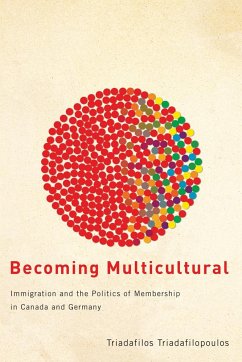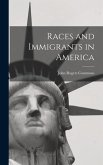During the first half of the twentieth century, Canada's andGermany's responses to questions of national membership consistedof discriminatory policies aimed at harnessing migration for economicends. Yet, by the end of the century, both countries were transformedinto highly diverse multicultural societies. How did this remarkableshift come about? Triadafilopoulos argues that, after the war, globalhuman rights norms intersected with domestic political identities andinstitutions, opening the way for the liberalization of Canada'sand Germany's immigration and citizenship policies. His is athought-provoking analysis that sheds light on the dynamics ofmembership politics and policy making in contemporaryliberal-democratic countries.
Bitte wählen Sie Ihr Anliegen aus.
Rechnungen
Retourenschein anfordern
Bestellstatus
Storno








